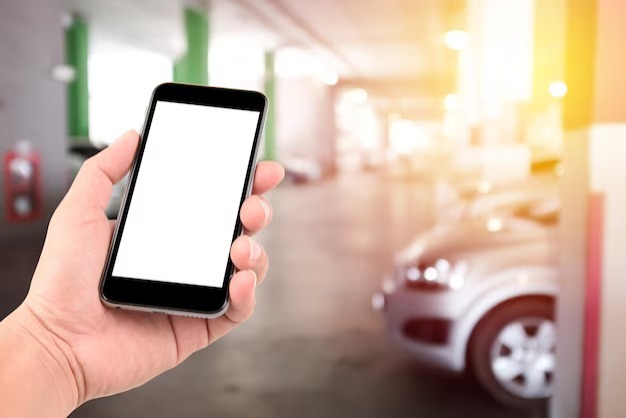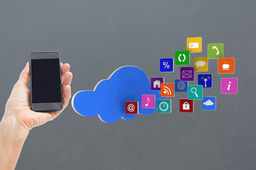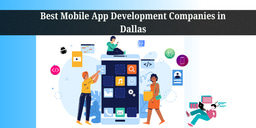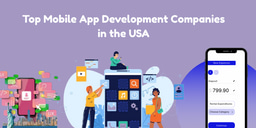How to Choose the Best Fuel Delivery App Development Company?

The on-demand economy has changed how people access everything, from groceries and taxis to now, even fuel. In this digital era, convenience is king, and fuel delivery apps are becoming a game-changer for both customers and fuel suppliers. These apps let users order fuel anytime, anywhere, eliminating the need for gas station visits.
For entrepreneurs and businesses, investing in a fuel delivery app is no longer just an innovation; it’s a competitive necessity. But before you enter this growing market, the most critical decision you’ll make is choosing the right app development partner.
A professional team can turn your concept into a scalable, feature-rich app that meets safety standards and business goals.
Let’s explore how to find the best partner, what factors to consider, and why the right collaboration can determine your project’s long-term success.
Steps to Select the Best Fuel Delivery App Development Company
Here are the key steps that you can explore for selecting the best and prominent app development company.
1. Understand the Market and Your Business Goals
Before searching for a development company, start by defining your business goals. Who is your target audience: individual car owners, logistics fleets, or fuel distributors? What specific problem do you want to solve through your app?
A successful project starts with a clear vision. Analyze your competitors like CAFU, EzFill, and Booster. Study their features, user reviews, and technology stack. This will help you identify gaps and opportunities that your app can fill.
Once your vision is defined, you can align your goals with the development partner’s expertise. This ensures your collaboration isn’t just about building an app, but about creating a long-term business solution.
2. Look for Industry Experience and Technical Expertise
Not all app developers understand the complex logistics, regulatory compliance, and real-time tracking systems that fuel delivery apps require. That’s why partnering with a specialized fuel delivery app development company like JPLoft can make all the difference.
Experienced companies already understand essential industry-specific requirements, like safety protocols for handling hazardous materials, GPS-based fuel tracking, and dynamic pricing integration. They can guide you through compliance processes, UI/UX design for operational efficiency, and backend integrations for secure payment processing.
Also, check if they’ve worked with IoT, AI, and fleet management solutions, technologies that add value to modern fuel delivery systems. A skilled team will not only write clean code but also create a seamless, scalable experience tailored to your customers and drivers.
3. Review Their Portfolio and Client Testimonials
A company’s past work says more than any pitch deck. Visit their portfolio and examine previous mobile app projects, particularly on-demand or logistics-based apps.
Look for:
- Functionality and performance of the apps they’ve built
- UI/UX quality and ease of navigation
- How those apps perform under load and scale with growing users
- Real client reviews on platforms like Clutch or GoodFirms
Client testimonials also reveal how well the company communicates, meets deadlines, and provides post-launch support. If possible, reach out to past clients directly to confirm their satisfaction and get an honest view of what to expect.
4. Evaluate the Development Process
A transparent and structured development process is a good sign of professionalism. Ask the company about their workflow, from project discovery to post-launch maintenance.
A strong development cycle usually includes:
- Requirement analysis: Understanding your goals, audience, and technical needs.
- Prototyping & design: Wireframes, user flows, and UI/UX planning
- Development & testing: Building both front-end and back-end features with continuous quality checks.
- Deployment: Launching the app smoothly on Google Play and the App Store.
- Maintenance & updates: Offering support for bug fixes, security patches, and feature upgrades.
Companies that follow agile methodologies or DevOps practices often deliver faster and more reliable results.
5. Assess Technology Stack and Customization Options
Your app’s tech foundation determines its speed, scalability, and long-term performance. Discuss the technology stack with your development partner; this typically includes frameworks like Flutter, React Native, or Kotlin for mobile, and Node.js or Laravel for backend systems.
Customization is key to standing out in the competitive on-demand market. Generic templates won’t cut it.
Look for developers who can create features like:
-
Smart fuel scheduling and routing algorithms
-
Integrated payment gateways
-
Driver dashboards and analytics
-
Admin control panels
-
Push notifications for real-time updates
These custom features can give your app a strong edge in usability and reliability.
6. Analyze the Cost and Budget Factors
Every business has a budget, but your goal should be to find value, not just the lowest price. The cost to develop a fuel delivery app depends on multiple factors: app complexity, feature set, platform choice (iOS, Android, or both), and integration with third-party APIs.
Approximate costs can range from $25,000 to $120,000 based on these variables and the company’s location. Developers in regions like India, Eastern Europe, or Southeast Asia generally offer competitive pricing without compromising quality.
Request a detailed project estimate from multiple vendors and compare their offerings. Watch out for hidden costs related to maintenance, upgrades, or hosting services. The right development company will give you a clear cost breakdown with timelines and deliverables.
7. Prioritize Communication and Project Transparency
Good communication builds trust. Your chosen partner should be proactive in sharing updates and receptive to your feedback throughout the development journey.
Ask questions like:
-
What communication tools do they use (Slack, Jira, Trello)?
-
How frequently do they provide updates or reports?
-
Do they assign a dedicated project manager or point of contact?
You should feel confident that your inputs are valued and integrated into the final product. Transparency about deadlines, milestones, and challenges shows that the team is committed to accountability and collaboration.
8. Check Post-Launch Support and Maintenance
Launching your fuel delivery app is just the beginning. Ongoing maintenance ensures smooth performance, feature improvements, and security updates as user demand grows.
A good partner will offer:
-
Continuous monitoring and error tracking
-
Regular performance optimization
-
Version updates for iOS and Android compatibility
-
Prompt response to bug reports and crashes
Without proper support, even a well-built app can lose users quickly due to performance issues or outdated functionality.
9. Consider Location and Cultural Fit
If you’re targeting customers in a specific region like the UK, partnering with a mobile app development company in the UK can be beneficial. Local developers understand regional regulations, fuel compliance laws, and user behavior better.
Moreover, working in similar time zones improves collaboration and reduces communication delays. You’ll also find it easier to conduct face-to-face meetings, discuss ideas, and align on goals. However, if you’re working with an international team, ensure they have strong project management systems to bridge any distance gaps effectively.
10. Security and Compliance Must Come First
Fuel delivery apps deal with sensitive data, from payment information to GPS locations. Security can’t be an afterthought. Make sure your chosen development company follows best practices like:
-
End-to-end encryption for data transfer
-
Two-factor authentication for user logins
-
Role-based access control for admin and driver dashboards
-
GDPR and local data privacy compliance
For fuel companies operating across multiple countries, regulatory compliance is crucial. The development partner should help you implement regional safety protocols and ensure your app adheres to government guidelines on fuel transportation and delivery.
11. Future-Ready Features and Innovation
The fuel delivery market is evolving quickly. Apps that stay relevant are those that innovate continuously. Look for developers who keep up with emerging technologies like:
-
AI-based predictive refueling — automatically scheduling deliveries before a customer runs low.
-
IoT-enabled fuel sensors — allowing real-time monitoring of tank levels.
-
Blockchain integration — ensuring transaction transparency.
These future-ready features not only improve customer experience but also strengthen your brand’s position in a tech-driven marketplace.
Conclusion
Choosing the best app development company requires more than a quick online search; it’s about finding a reliable partner who understands your business vision, technical requirements, and long-term goals. The right team will help you build a secure, scalable, and feature-rich platform that stands out in a competitive market.
Take your time to research, compare, and communicate clearly before signing a deal. Whether you’re a startup or an enterprise, investing in expert app development today can drive convenience, loyalty, and growth for years to come.
In the world of on-demand fuel delivery, your app is your business, so choose your development partner wisely.






Please sign in or register for FREE
If you are a registered user on AVIXA Xchange, please sign in